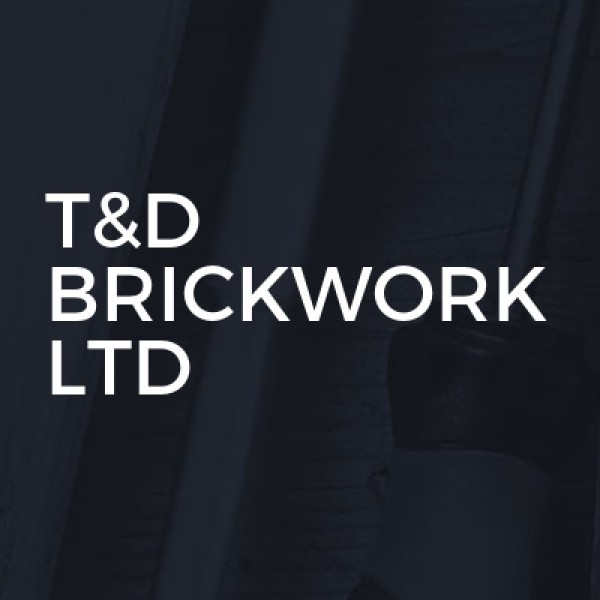Introduction to Home Office Conversions in Marylebone
Marylebone, a charming district in the heart of London, is renowned for its elegant Georgian architecture and vibrant community. With the rise of remote working, many residents are considering home office conversions in Marylebone to create a productive and comfortable workspace. This article delves into the various aspects of transforming a part of your home into an efficient office, ensuring it meets both aesthetic and functional needs.
The Benefits of Home Office Conversions
Converting a space in your home into an office offers numerous advantages. Firstly, it eliminates the daily commute, saving time and reducing stress. Additionally, a home office can increase property value, providing a return on investment. It also allows for a personalised work environment, enhancing productivity and creativity.
Increased Property Value
Investing in a home office conversion can significantly boost your property's market value. Potential buyers often seek homes with dedicated workspaces, making your property more attractive. In Marylebone, where real estate is highly sought after, this can be a lucrative enhancement.
Personalised Work Environment
One of the greatest perks of a home office is the ability to tailor the space to your preferences. Whether you prefer a minimalist design or a vibrant, eclectic setup, the choice is yours. This personalisation can lead to increased motivation and job satisfaction.
Planning Your Home Office Conversion
Before diving into a home office conversion, careful planning is essential. Consider factors such as space availability, budget, and design preferences. It's also crucial to ensure the space meets ergonomic standards to promote health and well-being.
Assessing Space and Budget
Start by evaluating the available space in your home. Whether it's a spare room, a corner of the living room, or an attic, the area should be sufficient to accommodate your work needs. Next, establish a budget that covers furniture, equipment, and any necessary renovations.
Design and Ergonomics
Design plays a pivotal role in creating a conducive work environment. Opt for ergonomic furniture to prevent strain and injury. Good lighting, adequate storage, and a clutter-free setup are also vital components of an effective home office.
Legal Considerations for Home Office Conversions
When planning a home office conversion in Marylebone, it's important to be aware of any legal requirements. This includes obtaining necessary permits and adhering to building regulations. Consulting with a local expert can ensure compliance and avoid potential issues.
Permits and Regulations
Depending on the extent of your conversion, you may need planning permission or building regulation approval. This is particularly true if structural changes are involved. It's advisable to check with the local council to understand the specific requirements for your project.
Insurance Implications
Converting a part of your home into an office may affect your home insurance policy. Inform your insurer about the changes to ensure your coverage remains valid. You might also need additional coverage for office equipment and liability.
Choosing the Right Furniture and Equipment
The furniture and equipment you select for your home office can greatly impact your productivity and comfort. Invest in quality items that cater to your work style and needs.
Essential Furniture Pieces
A sturdy desk and a comfortable chair are the cornerstones of any home office. Consider adjustable desks and ergonomic chairs to support good posture. Additional furniture, such as shelves and filing cabinets, can help keep the space organised.
Technology and Equipment
Equip your office with the necessary technology to facilitate your work. This may include a computer, printer, and reliable internet connection. Depending on your profession, specialised equipment might also be required.
Incorporating Style and Comfort
While functionality is key, don't overlook the importance of style and comfort in your home office. A well-designed space can inspire creativity and make work more enjoyable.
Decor and Aesthetics
Choose a colour scheme and decor that reflect your personality and preferences. Plants, artwork, and personal mementos can add warmth and character to the space. Ensure the decor complements the overall style of your home.
Comfort and Well-being
Comfort is crucial for maintaining focus and productivity. Ensure your office is well-ventilated and has adequate natural light. Incorporate elements that promote relaxation, such as a comfortable chair or a small reading nook.
Maximising Space in Small Areas
Not everyone has the luxury of a large home office. However, with clever design and organisation, even the smallest spaces can be transformed into efficient work areas.
Space-Saving Solutions
Utilise vertical space with wall-mounted shelves and storage units. Foldable desks and chairs can be practical for compact areas. Multi-functional furniture, such as a desk with built-in storage, can also help maximise space.
Creative Layouts
Experiment with different layouts to find the most efficient use of space. Consider positioning your desk near a window for natural light or using a corner to create a cosy, secluded workspace.
Maintaining Work-Life Balance
Working from home can blur the lines between professional and personal life. Establishing boundaries and routines is essential for maintaining a healthy work-life balance.
Setting Boundaries
Designate specific work hours and communicate them to family members. This helps minimise distractions and ensures you have time for personal activities. A physical boundary, such as a door or partition, can also help separate work from home life.
Creating Routines
Develop a daily routine that includes regular breaks and time for exercise. This can improve focus and prevent burnout. Incorporate activities that promote relaxation and well-being, such as meditation or a short walk.
Environmental Considerations
As awareness of environmental issues grows, many people are seeking sustainable solutions for their home office conversions. This not only benefits the planet but can also create a healthier work environment.
Sustainable Materials
Opt for furniture made from sustainable materials, such as bamboo or recycled wood. These materials are not only eco-friendly but also durable and stylish. Consider energy-efficient lighting and appliances to reduce your carbon footprint.
Energy Efficiency
Implement energy-saving practices, such as using LED bulbs and unplugging devices when not in use. Natural light and ventilation can also reduce the need for artificial lighting and air conditioning.
Frequently Asked Questions
- Do I need planning permission for a home office conversion in Marylebone? It depends on the extent of the conversion. Minor changes may not require permission, but structural alterations likely will.
- How can I make my small home office feel larger? Use light colours, mirrors, and multi-functional furniture to create the illusion of space.
- What are some ergonomic tips for a home office? Ensure your chair and desk are at the correct height, and take regular breaks to stretch and move around.
- Can a home office increase my property's value? Yes, a well-designed home office can make your property more appealing to potential buyers.
- What should I consider when choosing office equipment? Prioritise quality and functionality, and ensure the equipment meets your specific work needs.
- How can I maintain work-life balance when working from home? Set clear boundaries, establish a routine, and make time for personal activities.
Final Thoughts on Home Office Conversions in Marylebone
Home office conversions in Marylebone offer a unique opportunity to blend functionality with style, creating a workspace that enhances productivity and well-being. By carefully planning your conversion, considering legal and environmental factors, and choosing the right furniture and equipment, you can transform any space into a thriving home office. Embrace the flexibility and personalisation that come with working from home, and enjoy the benefits of a dedicated workspace in the heart of London.


















